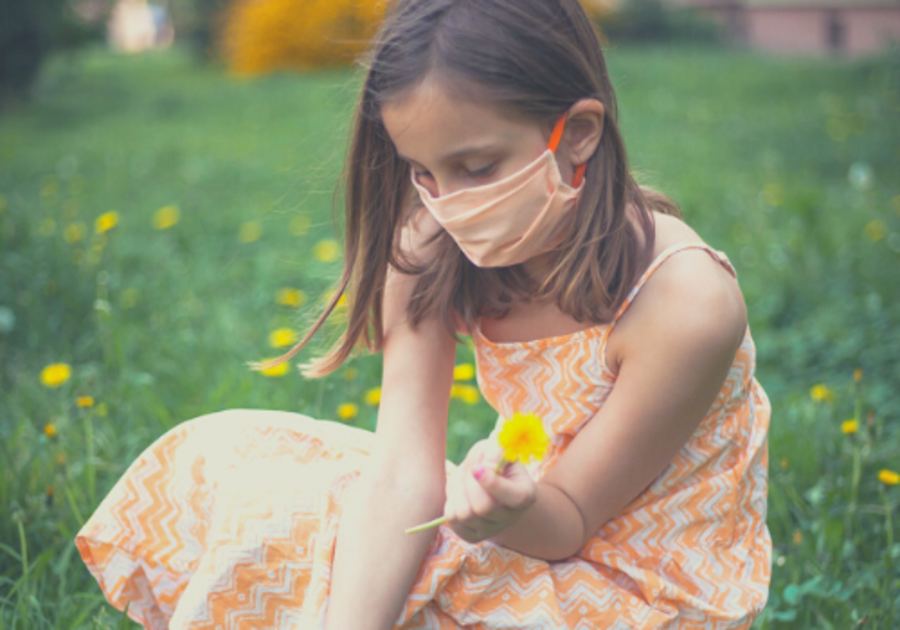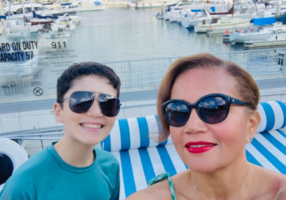*This article is a 3 minute read.
We all know a Helicopter Parent. You know the parent that hovers over their kid, micromanages them, hindering their growth and development. Unanimously, therapists warn such parenting causes insecurity and anxiety in children.
I've encountered my fair share of Helicopter Parents. One that comes to mind is an infamous dad that crashed his kid's youth art class every week. This father did the art projects for his kid, but even worse his presence disturbed the dynamic of the class, as well as the free flow of discourse that normally occurred among its students.
This father robbed his child of the ability to be independent, learn art, make friends on their own, even make their own mistakes a valuable lesson.
As I thought about Helicopter Daddy, I wondered, how are Helicopter Parents faring in the pandemic?
Are they hovering over their children even more, or are they unable to hover now that they're juggling remote work and their child's distance learning?
I had so many questions, so I asked three experts: Wendy Faucett a Parenting Coach, Lenore Skenazy, Founder of Let Grow a non-profit promoting childhood independence, and Dr. Ran D. Anbar, a hypnotherapist who uses pediatric hypnosis and counseling methods to bring about positive change in the physical and mental health of children.
Wendy Faucett believes it's time for parents to let go of the reins. According to Ms. Faucett, "Parents can choose to make distance learning help their children grow more responsible, respectful and resourceful. Parents who tend toward micromanaging might feel the need to amp up those tendencies, but would be wiser to let their kids take more responsibility for their school obligations."
In Tennessee, one school district banned parents from attending their children's virtual classroom. This ban is to protect students identity, and allow school staff to do their jobs, but does this ban existence suggest that parents were sitting in on their children's classes uninvited?
Dr. Ran Anbar states, "I would discourage parents from getting involved in judging other children in the virtual classrooms. In fact, if the child is old enough, the parents should leave the child alone when he or she is attending virtual school. This is an example of helicopter parenting that sends a message to the child that their parents do not trust them to deal with their classmates. Some of these children then become anxious about their own ability to make decisions in the long run. Other children resort to hiding things from their parents because they dislike the high degree of parental involvement. Neither of these scenarios are healthy for the child or the child/parent relationship.
Worrying about germs and microbes...
Just how destructive is it to a child's psyche to be told to beware of everything and everyone they come in contact with?
According to Dr. Anbar, "Children are resilient, and thus can weather a lot and then recover. However, parents should think about how to emphasize safety in a way that promotes their child’s mental health. For example, instead of saying, “Anyone you meet can infect you,” a parent might say, “Isn’t it wonderful that we can all help keep each other safe by wearing masks and maintaining our distance?”
On the flip side more and more parents are giving their kids freedom!
While a lot has been written about the negative impacts of Helicopter Parenting, Lenore Skenazy found that some parents are giving their kids more space. "Let Grow did a survey of 1600 kids and 1600 parents across the economic and geographic spectrum. We found that a whole lot of parents are giving their kids MORE freedom than they had before the pandemic, in part because the kids have so much newly free time now – no extracurriculars, no playdates, fewer hours of school – that the
parents couldn’t fill it all. As a result, both generations seem to be appreciating each other more. Parents say they’re seeing their kids do more things on their own (including housework!). Kids are enjoying the time with their families and starting to find new interests, from biking to baking to, believer it or not, bitcoin!
Use positive suggestions when discussing Covid with your kids!
According to Dr. Anbar, "Instead of saying, “if you get COVID you might get really sick and infect other people, which would be really bad,” they might say, “Children who get COVID usually do really well, and sometimes don’t even realize they are sick. We are so lucky that we can help ourselves stay healthy by washing our hands!”
Lenore Skenazy adds, "There’s so much that kids can do on their own, even during a pandemic. They can make things, explore, learn new skills, help out… The only thing they can’t do is gather in groups. When parents give their kids a little more independence, the kids flourish. At Let Grow, we created a free Let Grow Independence Kit that explains to parents all the benefits of kids doing a little more on their own, and then it lists a whole bunch of activities kids might want to try.
Click Here To Learn More About Let Grow!
Click Here To Follow Parenting Coach Wendy Faucett on Facebook!
To Connect With Dr. Anbar Visit: www.centerpointmedicine.com
3252 Holiday Court, Suite 113, La Jolla, CA 92037
Related Articles
Anxious Kids-Why Anxiety is on The Rise in Children
Would You Try Hypnosis on Your Child?
Stay Informed Join Central San Diego Macaroni Kid It's Free!



